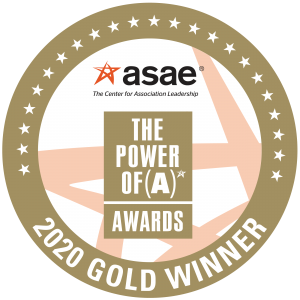Can You Take a Gap Year Before Optometry School?
In 2016, when President Obama’s daughter Malia decided to take a “gap year” between high school and college, it was widely reported and drew a lot of attention to the concept. College graduates, too, can consider taking a gap year before moving on to graduate or professional school, including optometry school. This is something optometry school admissions officials say they’re seeing more often.
To begin optometry school in the fall directly following graduation from college, students must apply during the OptomCAS application cycle that begins in the summer after their junior year. To wait to apply to optometry school until the OptomCAS application cycle that begins in the summer after the senior year creates a gap year. And “create” the year is exactly what a student would want to do. It’s important to understand that a gap year isn’t all about several months of relaxation. It’s not about being passive, but about actively planning and executing the year, as described by the American Gap Association, “in order to deepen practical, professional and personal awareness.”
Why a Prospective Optometry Student Might Use a Gap Year
A gap year may be beneficial for students who are taking multiple optometry school prerequisite courses during their senior year of college, says Andrea Lybarger, Assistant Director of Graduate and Professional Programs Admissions at Pacific University. “Many of the prerequisite subject areas are represented on the Optometry Admission Test (OAT), so a student in that situation may not be prepared to take the test in the necessary time frame,” she says. “Another sign that a gap year might be a good idea is if an applicant is still in the process of deciding between careers. A gap year is a wonderful opportunity to gain observation hours and learn more about the profession to solidify the decision.”
Lyle Tate, Admissions Program Manager for the University of Houston College of Optometry (UHCO), says he often advises undergraduate students who are getting close to graduation and have just recently discovered an interest in optometry to take as much time as possible to gain exposure to the field by working, shadowing and/or volunteering in various optometric settings to be sure optometry is the field they’re passionate about pursuing. He also tells undergraduates who may be considering a gap year not to squander it. “Resting and getting rejuvenated for optometry school are important, for sure, but use those months to gain relevant experiences that will both excite you for starting an optometry program and show that you’ve maintained an engagement in the field during your gap months,” he says. “Also, have a plan for your gap year. Don’t let graduation creep up on you and then decide to take a year off. Plan ahead for how you’ll use those months to better prepare yourself for a rigorous graduate program.”
Consider Both Pros and Cons of a Pre-Optometry-School Gap Year
In Tate’s opinion, the biggest benefit of a gap year is gaining more experience relevant to optometry and optometry school. But there are potential downsides to consider, too. For example, he notes, “A student could potentially lose momentum for an optometry program’s rigorous curriculum or have decreased dedication to strong study skills and habits. Also, another year may have passed since taking courses in core subject matter such as biology, chemistry and physics.” Lybarger adds that it can “sometimes be difficult for an applicant to get a letter of recommendation from a professor who has taught them in college if they wait too long to ask.” In addition, it’s not uncommon for students to want to take advantage of a gap year to save money for optometry school and living expenses, but it’s also not uncommon for them to find they weren’t able to save as much as they thought they would. No matter what reason(s) a student has for considering a pre-optometry-school gap year, Lybarger advises them to “Think about what you want to accomplish during that time and whether you’ll really be able to do the things you want to do.”
A Gap Year is Potentially a Good Plan for Entering Optometry School
Speaking only for UHCO, Tate explains that “We tend to look favorably on a gap year as long as the applicant shows strong evidence that the year was utilized to its fullest potential by continued involvement in the field of optometry however possible – working, shadowing, volunteering, staying engaged in pre-optometry organizations, etc. Even if the student took the year to travel internationally, for example, as long as he or she can parlay that experience into readying himself or herself to be dedicated to optometry school, we see that as a positive aspect of the application.”





